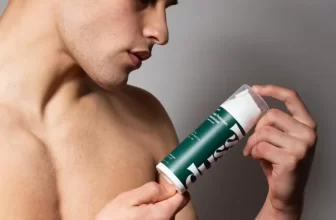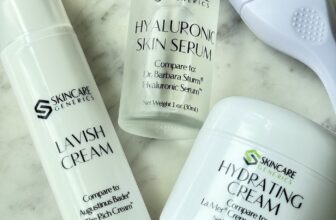
Social media has revolutionized the way in which we find out about magnificence and skincare. From viral TikTok tendencies to influencer product suggestions on Instagram and Reddit, it’s simpler than ever to seek out recommendation on care in your pores and skin. However how a lot of this info is correct—and the way a lot is outright deceptive and even harmful?
The Downside with Influencer Skincare Recommendation
Influencers, no matter their follower depend, are usually not essentially specialists in skincare. Many are usually not dermatologists, estheticians, or beauty chemists; they’re merely people sharing their private experiences. Whereas some genuinely goal to coach their viewers, others are primarily motivated by sponsorships, affiliate internet marketing, and tendencies fairly than science-based details.
Listed here are a few of the commonest points with skincare recommendation on social media:
1. Misinformation and Overgeneralization
One-size-fits-all recommendation doesn’t apply to skincare. But, influencers typically promote merchandise as “miracle cures” with out acknowledging that everybody’s pores and skin is totally different. A product that works wonders for one individual might trigger irritation, breakouts, or allergic reactions for an additional.
2. The Promotion of Dangerous DIY Cures
Platforms like TikTok and Reddit are crammed with DIY skincare hacks, a lot of which could be harmful. Frequent examples embody utilizing lemon juice to lighten pores and skin (which might trigger extreme irritation and solar sensitivity), making use of toothpaste to zits (which incorporates elements not meant for pores and skin), or over-exfoliating with harsh scrubs that harm the pores and skin barrier.
3. Unregulated Product Endorsements
Many influencers are paid to advertise merchandise with out disclosing their partnerships, making it troublesome for shoppers to know if a suggestion is real or financially motivated. The shortage of regulation permits deceptive claims to unfold unchecked.
4. Pseudoscience and Concern-Mongering
Skincare myths typically go viral as a result of they faucet into concern. Phrases like “poisonous,” “chemical-free,” and “clear magnificence” are steadily misused to scare shoppers away from sure elements with out scientific backing. The truth? Every little thing is a chemical—even water! Many “feared” elements, comparable to parabens and silicones, are secure when used accurately and have undergone rigorous testing.
How one can Discover Dependable Skincare Info
With a lot misinformation on-line, how can shoppers guarantee they’re getting correct skincare recommendation? Listed here are some safer, science-backed methods to coach your self:
1. Belief Dermatologists and Skincare Specialists
Comply with board-certified dermatologists and licensed estheticians who depend on peer-reviewed research fairly than tendencies. Search for specialists like Dr. Shereene Idriss, Dr. Ranella Hirsch, or The American Academy of Dermatology, who present factual, research-based insights.
2. Verify Credible Web sites
Dependable sources such because the American Academy of Dermatology (AAD), the Nationwide Institutes of Well being (NIH), and the Journal of the American Medical Affiliation (JAMA) present science-backed info on skincare and beauty merchandise.
3. Learn Ingredient Lists and Analysis Merchandise Independently
As an alternative of counting on influencer hype, take a better have a look at a product’s ingredient checklist. Web sites like INCIDecoder and Paula’s Alternative Ingredient Dictionary break down elements to assist shoppers perceive their advantages and potential dangers.

4. Be Skeptical of “Too Good to Be True” Claims
If a product guarantees on the spot outcomes or seems like a miracle remedy, strategy with warning. Good skincare takes time, and no single product can erase wrinkles in a single day or remedy zits in a day.
5. Ask Your Dermatologist or Licensed Skincare Skilled
When you’re uncertain a few product or remedy, the most secure route is to seek the advice of knowledgeable who understands pores and skin science and might present tailor-made recommendation primarily based in your pores and skin’s wants.
Last Ideas
Whereas social media is usually a beneficial device for locating new skincare merchandise, it’s also a breeding floor for misinformation. Shoppers ought to be cautious, fact-check claims, and prioritize science-backed sources over viral tendencies. Your pores and skin deserves care primarily based on analysis, not simply advertising.
By taking a extra important strategy to skincare recommendation, you may defend your self from deceptive claims and make knowledgeable decisions that actually profit your pores and skin’s well being.





